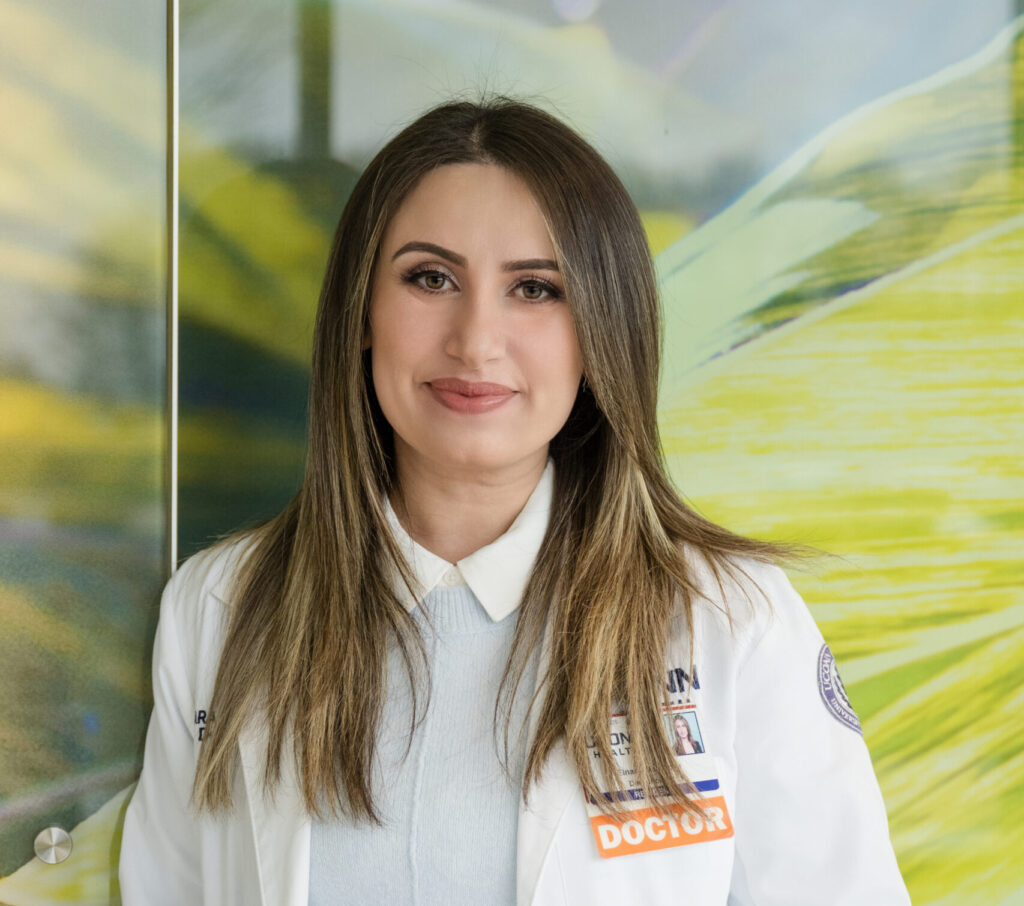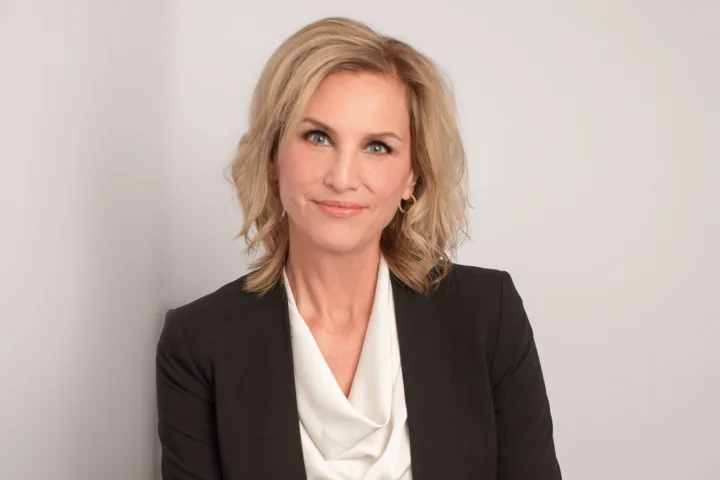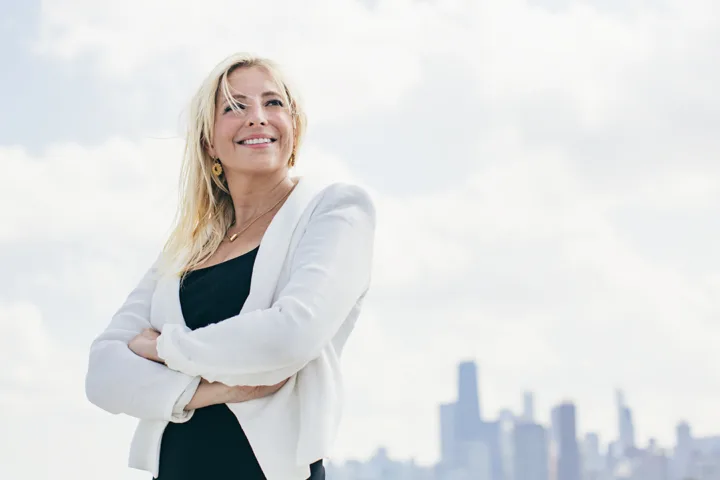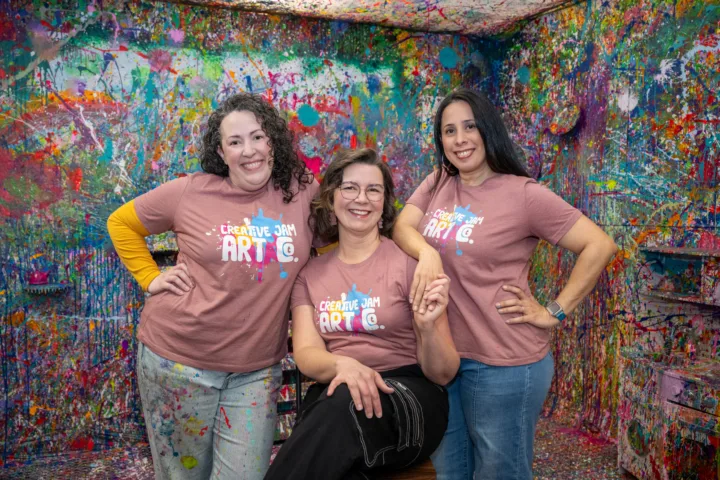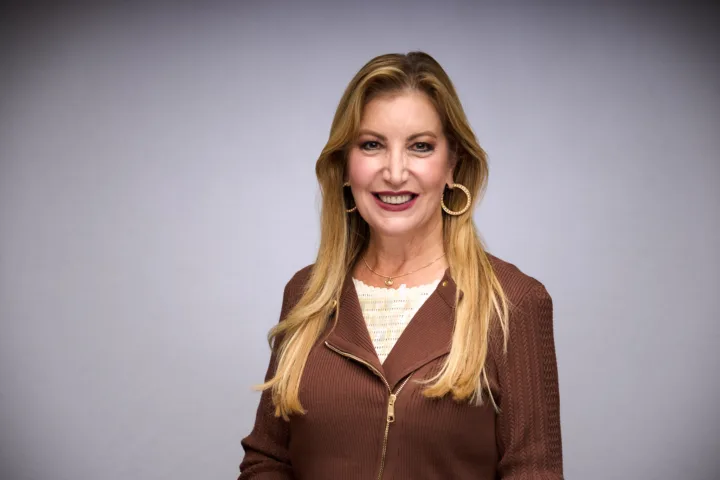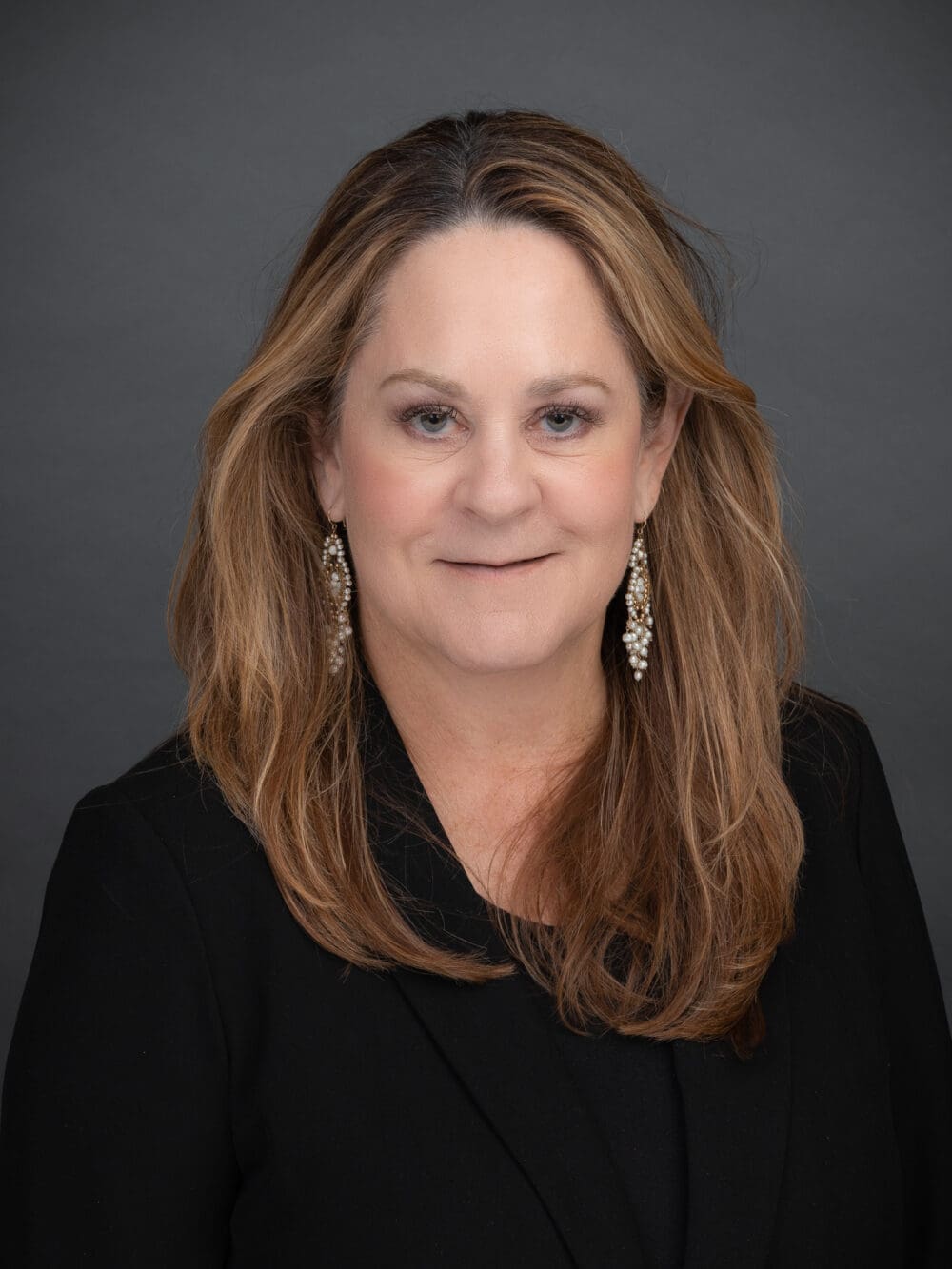From War to Healing Fields. Overcoming Discrimination to Triumph in Medicine – The Empowering Story of a Woman Warrior
This story is a journey of triumph and a symbol of strength and resilience, essential for every woman, daughter, and student. It goes beyond one person’s success, teaching courage, perseverance, and the relentless pursuit of dreams despite challenges. It encourages women to support and inspire each other, making it a vital read for females of all ages, urging them to pass on its powerful message.
Elnara Muradova is a dermatologist whose journey to success is remarkable. Born in Uzbekistan, she faced unimaginable discrimination and displacement from a young age. Her family moved tens of times, struggling against rejection that refused them land, homes, and basic dignity. Yet, from these trials emerged a woman of steel, undeterred by the hardships that sought to define her.
At 18, she entered America with just a high school diploma and a reservoir of dreams. This marked the beginning of a new chapter that was blank but brimming with potential. The transition was fraught with challenges; not only did she have to navigate a new country, but she also had to surmount language barriers, cultural differences, and the immense pressure of starting from scratch in a land where she had no footing.
Her story is a testament to the power of hard work, perseverance, and an unwavering belief in oneself. She not only adapted to her new environment but thrived in it, pursuing higher education in medicine with a passion fueled by her early experiences of exclusion and adversity. Her dedication was unmatched, leading her to earn her MD and become a respected name.
As you read her story, you will see her world, sharing insights into her struggles, triumphs, and the lessons learned. Her narrative is not just her own but a shared echo of every woman who has dared to dream in the face of adversity. And also, share her story with your daughters if they want to become doctors. Show them that anything is possible with hard work and dedication. Tell them that they have the power to make their destiny. Inspire them to follow their dreams.
✿ Thank you for reading!
Subscribe to be our bestie, no spam—just good vibes once a month.
Please meet Dr. Elnara Muradova
Interview Pinar Ozyigit
Photos Debra Chute
Nara, I want to talk about your high school experience in Russia, which led to you receiving a gold medal. Can you tell me the story so everyone can listen to it that gives me goosebumps?
Growing up as a refugee in Russia was a challenging experience. We encountered frequent discrimination and were often made to feel unwelcome in our community. It was ironic that despite their disdain for the community I belonged to, they appreciated me for my assistance. As a hard-working student throughout my education, I excelled in my studies and supported my school in academic standings and state competitions. My sole aspiration was to advance my education and become a physician. Despite being told that someone like me couldn’t attend university because it was supposedly reserved only for Russian citizens or those with financial means, I persevered in pursuing my goal. They advised me not to dream beyond my limits; I remained resolute. I don’t rely on external validation to feel successful; I am confident in my worth and intelligence. These qualities are all a person needs, particularly a girl, deep within their heart.
In the Russian school system, upon graduation, students can earn either a gold or silver medal based on their academic performance. My grades and scores made me eligible for a gold medal. Just before the finals, the principal called me into her office to discuss the matter. She voiced her apprehensions that despite meeting the criteria for a gold medal, I might still need to receive it due to my circumstances. Wanting to spare me any disappointment, she suggested deliberately making a few mistakes on my final exams to increase the chances of obtaining a silver medal, as she believed the gold would likely be unattainable to me.
I felt disheartened, but I chose to trust her judgment. When I shared our plan with my mother, she reacted strongly, saying, “How dare she dictate what you should do in your exams. Just give it your all and disregard her words. You’ll know you’ve earned it, even if they don’t acknowledge it!” And you know what happened? On graduation day, as I sat among the medalists from other schools in the auditorium, the silver medals were distributed first, followed by the gold. Until the last moment, I didn’t anticipate my name being called. When it finally happened, I approached the stage and received the medal from the governor, who whispered, “I hope you return once you’ve finished in the USA.” My principal, who had accompanied me to the ceremony, was astonished to see the medal in my hands. She was the first woman to tell me I couldn’t achieve something because it was impossible.
Why was there hate? Why did they act like that?
Since World War II, my community (Meskhetian Turks) has endured exile in the USSR, facing forced deportations. Following the collapse of the USSR, my family was compelled to leave our home in Uzbekistan and resettle in southern Russia, as we had no other options. From the outset, we were informed that we were only temporary guests and made to feel unwelcome. Despite this, we did whatever was necessary to survive, laboring on farms and taking any available job to provide for our family. We could not return to our homeland or get out of Russia.
We were always in contact with the police, paying them bribes every three months to avoid being forced to leave. Failure to comply would result in fines or even imprisonment. However, our challenges didn’t end there. The regional Kazaks in our area harbored animosity towards us for political reasons. They instigated trouble, discriminating against us based on language, clothing, and simply being ourselves. Despite the relentless hardships, we persevered. We had no other option but to keep moving forward.
Many immigrants have shared stories about their traumatic experiences with the police. Do you relate to these experiences in the same way?
From a young age, the police instilled fear in us, as we were made to feel inferior due to our non-resident status, constantly subjected to fines simply for existing peacefully. This pervasive interaction with law enforcement, always under unfavorable conditions, became a deep-seated childhood dread, with the mere sight of police officers triggering vulnerability. Instead of protectors, they were perceived as targeting us. For instance, in 2004, a regulation mandated students to pray in school or attend church, contradicting our beliefs and culture. This imposition in educational spaces underscored attempts to alienate us from our faith and identity. Thus, the fear and trauma associated with police aren’t just personal but a shared collective experience within our community, reflecting the ongoing struggle for recognition and respect within a system often geared to suppress our cultural identity and rights.
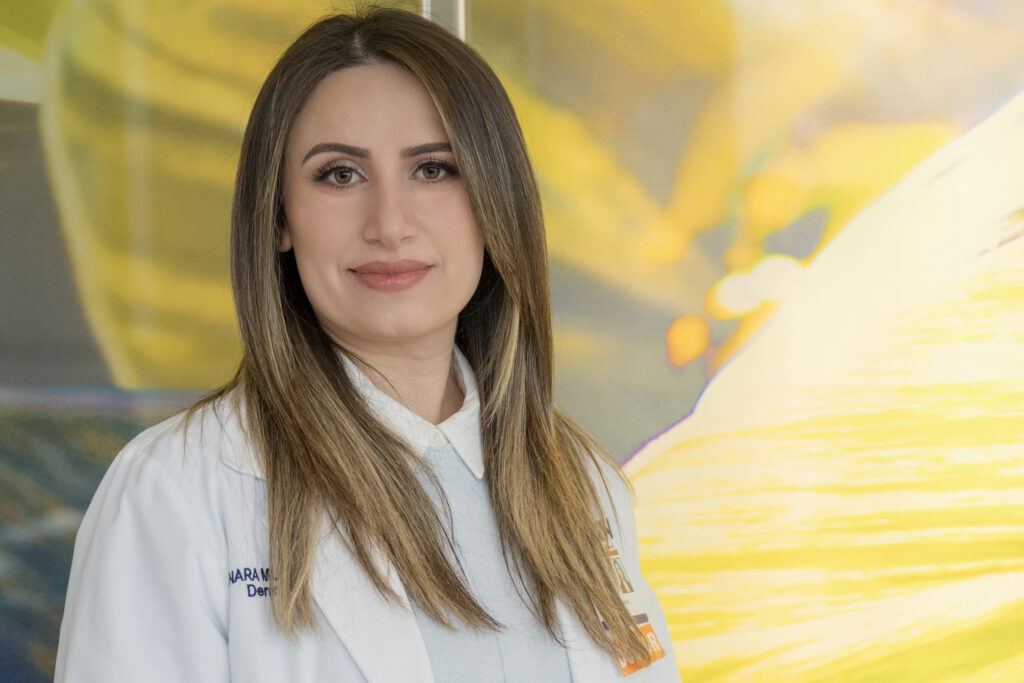
How was your personal life before America? As a young girl.
Reflecting on my school days, I vividly recall one day passing by a group of people gathered behind the park adjacent to our school. Their voices pierced the air, echoing with chants of “We have to get rid of them” directed at us – my family, my relatives, my community. It was chilling to hear them advocate for our deportation, even suggesting violent measures. As I entered school, all eyes turned towards me, a sense of isolation palpable as my peers discussed our community’s perceived shortcomings in classrooms filled with judgmental glances. Discussions revolved around our supposed failure to integrate and fit into their culture, condemning our language and traditions. Each day, returning home from school, I grappled with feelings of alienation and despair, dreading the next encounter. It was a tumultuous time, akin to a dramatic film unfolding before my eyes, leaving an indelible mark on my memory.
And thank God you left! Thanks to the United Nations, which changed your lives forever, along with many other families. Can you tell me how that happened? Do you remember the day of Nara? I think I am going to cry now!
In 2004, after nearly seven decades of seeking aid, the United Nations finally launched a sponsorship program in collaboration with the International Organization for Migration (IOM). This initiative proved to be a vital lifeline for us, enabling us to secure political asylum and relocate to the United States as political refugees. It was tailored specifically to assist us, the Meskhetian Turks living in the Krasnodar region, acknowledging the pressing nature of our circumstances.
How did everything happen? The process, I mean.
We were given a whirlwind of instructions in a short period: complete questionnaires, attend interviews, and prepare for relocation in a rush. With little time to spare, we scrambled to sell our belongings as we awaited plane tickets for our imminent move. Complicating matters, the local community knew of our impending departure, hesitating to purchase our property, waiting for us to vacate before swooping in to acquire our possessions. Despite these challenges, we sold our house, enduring a few more months in rented accommodation until we received the necessary clearance for our flight. Eventually, with our tickets in hand, we bid farewell to our old life, ready to embrace the promise of freedom in the United States.
Following a brief “Culture Shock” orientation spanning three days, we were equipped with insights into what life in the United States would entail, including what to expect and which city or state we would be relocated to. Assigned to different places, everything was meticulously organized, ensuring a smooth transition. Under the guidance of the Catholic Charities organization, we arrived in Pittsburgh, Pennsylvania, feeling warmly welcomed despite our language barrier, with a translator and case worker provided. We encountered unwavering support from the initial to the final steps, making the entire experience truly remarkable.
How were the very first impressions? What do you remember?
We were fortunate to have an apartment prepared for us, tailored to accommodate two girls and a boy, with carefully selected furniture and colors. It was a heartwarming gesture of welcome, a stark contrast to our experiences in Russia. Upon our arrival, immediate assistance was provided to enroll in language classes and schools; a stroke of luck arriving in May afforded us the summer to attend language courses and grasp as much English as possible. Rapid progress ensued as we learned essential skills like shopping, navigating public transportation, and obtaining driver’s licenses, making our transition feel like a dream.
As we began school, our presence garnered local attention, with a newspaper article titled “Refugees Came to Our School,” featuring my sister and me, as our school had not previously accommodated such a large, diverse group in a single school year. This newfound friendliness from strangers, initially unsettling, gradually revealed the warmth of American culture, prompting me to reciprocate greetings. This shift from the guarded interactions in Russia, where avoiding eye contact was the norm, to embracing the openness of American society marked a significant change in my daily life, understood only by those who have experienced relocating to a new country.
It doesn’t matter where you come from; the only important thing is where you want to go.
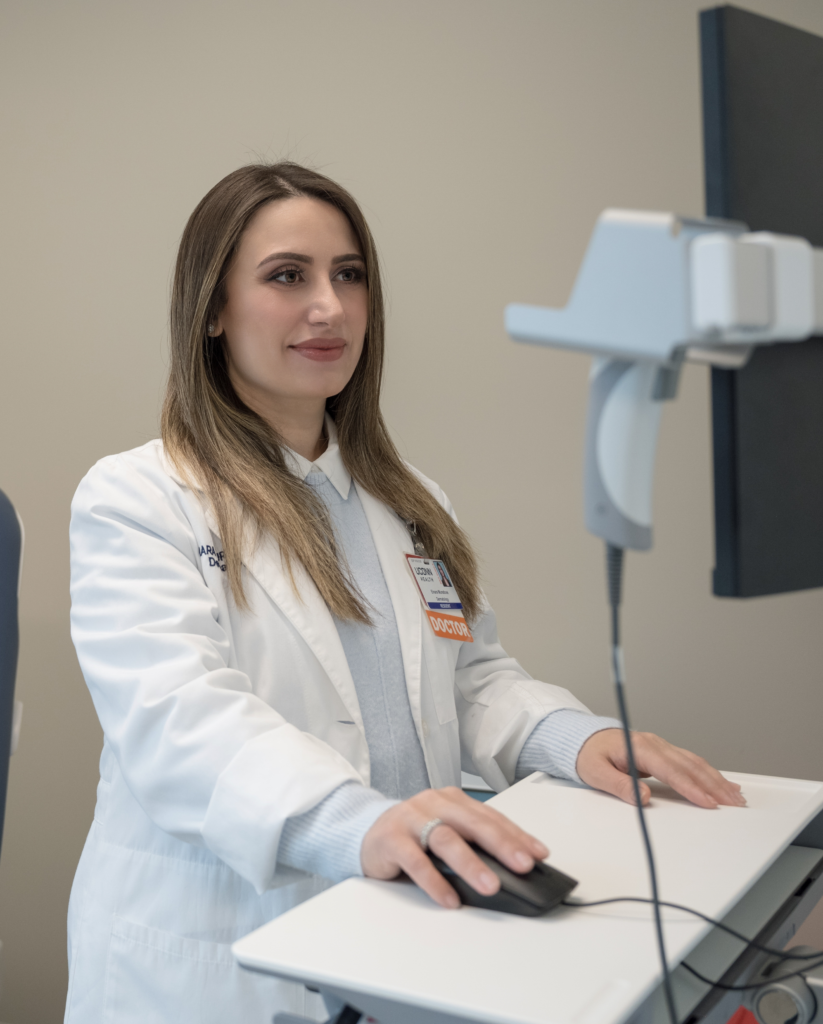
How was your experience in school and college?
That fall, I started 12th grade in school, relying on a dictionary and the guidance of my dedicated ESL teacher to navigate through the year. Despite the challenges, I persevered and successfully applied to the University of Pittsburgh, remaining focused on pursuing higher medical education. While in college, I worked part-time to help my family with financial needs and assist my community with language needs.
One day, while obtaining our documents, a Russian social worker told me to pursue more realistic goals instead of aiming for medical school in the USA. She questioned who had instilled the idea of medical school in my mind, emphasizing the difficulty for American-born students to become physicians. “Don’t dream too big,” she cautioned, “Don’t forget where you came from and who you are.”
I recalled a similar encounter with my high school principal as she spoke. Despite being in America now, I found myself reliving the same narrative. Another woman, echoing similar sentiments, said, “Do not dream so big. Do not forget who you are and where you came from.” This is why I tell girls that it doesn’t matter where you come from; the only important thing is where you want to go. Ignore those who tell you.
How was your early childhood? I am trying to understand how you have become so strong, Nara!
Since early childhood, throughout my summers, I worked alongside my parents on the farm, where agriculture was our sole source of money. While my peers reveled in their vacation time, my days were dedicated to working in the fields from early summer until the onset of fall and again in late spring, from dawn until dusk. Amidst the rows of tomatoes and other vegetables, I balanced harvesting with studying, seizing every spare moment to maintain my academic performance in school.
Those prolonged hours under the sun left me bronzed in various shades, often concealed beneath a hat to avoid detection by friends as I drove past or returned home, covered in grime and fatigue. While my peers enjoyed leisurely pursuits, I embodied the values of hard work and commitment. Though challenging, navigating this lifestyle as a teenager fortified my resilience and strength. Additionally, the farm served as my makeshift study hall, where I pored over textbooks and notes amidst tomato collecting, striving for good grades. These experiences, though demanding, were instrumental in shaping my character.
If we go back to that moment, she said it was impossible to become a doctor; what did you do to achieve your dream? Which steps did you take?
Upon completing my studies at the University of Pittsburgh, my husband, our 5-month-old daughter, and I relocated to Florida. There, I pursued advanced studies in biomedical sciences and delved into clinical research. Immersed in rigorous study, I dedicated myself to learning swiftly as a clinical researcher. Through my unwavering commitment, extensive research experiences, and invaluable mentors, I received acceptance letters from 7 of the 11 medical schools I applied to. Each acceptance felt like stepping into a dream, a testament to the culmination of my hard work and dedication.
You also entered into marriage at quite a young age. Why did you choose to do so? I’m curious because there’s a common belief that one should postpone or avoid marriage to achieve success.
Marriage holds a significant role in both my life and my cultural heritage. As the eldest in a large family with numerous cousins, I was expected to marry first, setting an example for others. Balancing these cultural expectations with my ambitions presented a challenge. Despite this, I’ve always been one to carve my path, particularly in education. The thought of years of undergraduate studies, followed by medical school and residency, seemed daunting, especially alongside the complexities of marriage.
Navigating personal and academic life taught me many lessons, often through trial and error. Despite societal pressures, I remained steadfast in my determination not to let marriage hinder my dream of becoming a doctor. When seeking a life partner, I sought someone who shared my aspirations and understood my goals.
After marriage, we faced the challenge of balancing our studies with family responsibilities, particularly after the birth of our first child. Language barriers added to the complexity, making it challenging to continue our studies as planned. However, we persevered with unwavering determination and mutual support, keeping our goals in sight. Reflecting on these experiences, I recognize how they shaped me, teaching resilience and the importance of perseverance. Marrying young and embarking on this journey was tough, but it ultimately led us to fulfill our dreams together.
Balancing academic pursuits with parenthood is a significant challenge. While I generally avoid gender-specific questions, the reality of pregnancy and childbirth uniquely affects women’s experiences in this regard. Could you share how you navigated both studying and raising children simultaneously?
Balancing academic pursuits with parenthood is not easy, but it’s not impossible. Having no family support and being required to work to provide for our two young children was a challenging experience. Some weeks, I barely slept, staying up studying for days. Despite the exhaustion, I joined a rigorous program at the University of South Florida and emerged as one of the top students in class 180. My goal was to become a Dermatologist, one of the most challenging specialties to enter in the medical field. Despite being discouraged from pursuing this specialty due to my parental responsibilities, I remained undeterred. When my medical school advisor suggested I reconsider my ambitions, citing my parental obligations as limitations, I refused to accept her recommendations. I left her office and cried, but I would not pursue a specialty I was not interested in to follow an easier or “more appropriate” path. I sought out numerous mentors and advocated for myself relentlessly, ultimately securing a one-year clinical research fellowship at the Moffitt Cancer Center in Tampa, FL, while in medical school. Through dedication, hard work, and perseverance, I was accepted into my top choice residency at the University of Connecticut Department of Dermatology, demonstrating that with determination, anything is possible.
Despite having other options available, I felt a solid connection for UCONN, reminiscent of my feelings when I first arrived in America. I knew this was where I belonged.
OMG Nara. Stop there! And tell me the story now. How are you connected with UCONN? How did you come to UCONN Farmington?
During my last year of medical school, I rotated at the UCONN Department of Dermatology. When I arrived at UCONN, I experienced an open and welcoming group of individuals. They greeted me with open arms and made numerous gestures to ensure I felt at home. Despite having other options available, I felt a solid connection for UCONN, reminiscent of my feelings when I first arrived in America. I knew this was where I belonged. While some questioned why I chose UCONN from Florida, I explained that I felt a deep affinity for the place and its proximity to family. After almost three years here, I’ve built strong connections and become deeply involved in the community. Despite only being here briefly, it feels like I’ve been part of UCONN for much longer.
What advice would you give young women and aspiring medical students who look up to you about pursuing their passions, overcoming adversity, and making their mark in the medical field?
My advice to young women and aspiring medical students is to believe in themselves, remain resilient in the face of challenges, and seek out mentors who can offer positive guidance and support. Ignore negative recommendations and focus on your goals. There will undoubtedly be obstacles and setbacks to achieving their dreams. However, it’s essential to remain resilient and bounce back from setbacks stronger than before. Each setback is an opportunity to learn and grow, ultimately making them more resilient individuals. Ultimately, I would remind them that their journey may not always be easy, but it will be worth it. By staying true to themselves and remaining resilient in the face of adversity, they can make a meaningful impact in the medical field, personal life, and beyond.
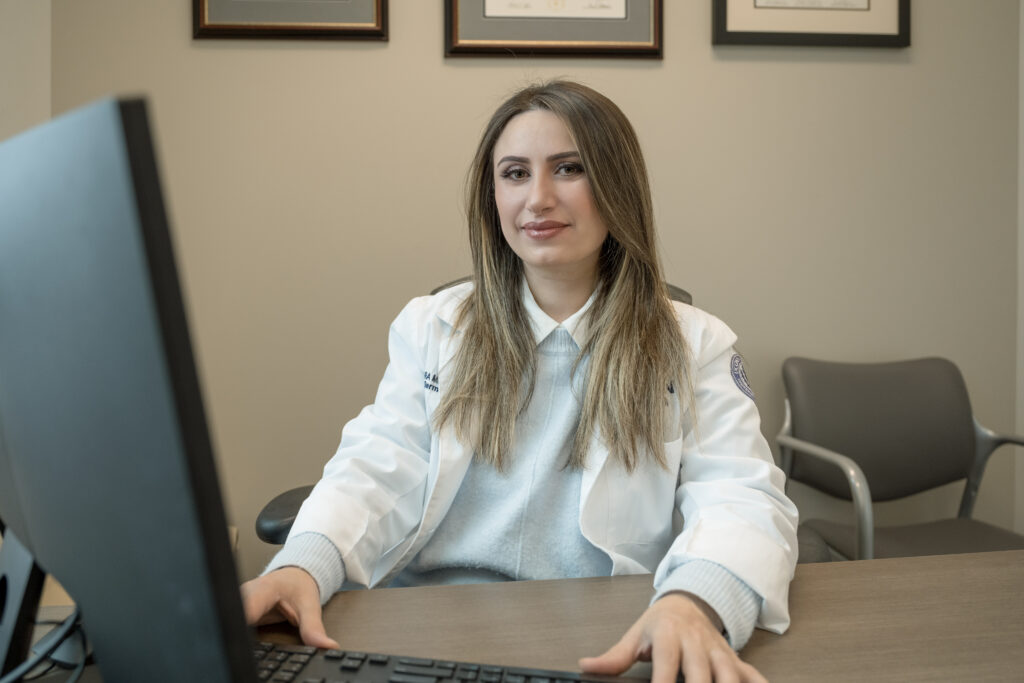
Facing systemic barriers and being told repeatedly about what you could not achieve must have been disheartening. How did you find the courage to defy those expectations and pursue your dream of becoming a doctor?
Facing systemic barriers and hearing repeated discouragement about what I couldn’t achieve was indeed disheartening, especially when it came from other women. In fields like medicine, where women often confront additional challenges, there’s a tendency to warn others about the difficulties ahead. However, as women, we should aim to support and uplift each other, drawing inspiration from successful female role models in our respective fields. It’s essential to extend a helping hand and offer support to those facing similar struggles, recognizing that while the journey may be challenging, it’s ultimately rewarding. Despite the limitations imposed by others, I refused to let them dictate my future, opting instead to carve out my path driven by passion and resilience.
Balancing motherhood with medical school is no small feat. What strategies did you employ to manage stress and maintain focus on your goals during the most intense periods of your training?
During the most intense periods of my training, I prioritized time management, establishing clear boundaries between study and family time. It’s remarkable how efficiently one learns to operate when balancing academic responsibilities with family duties. I’ve witnessed many successful mothers in the medical field, all of whom have learned to navigate their careers alongside home responsibilities. When selecting a medical school and residency training program, I considered the quality of training and the suitability of the location for my family. Opting for Farmington, CT, has proven to be a wise choice, as my family feels content and supported in this welcoming community, making it an ideal environment to raise children.
The decision to marry young and pursue a rigorous career path is often scrutinized. How did you navigate societal expectations and find fulfillment in your professional and personal life?
I never used my children as an excuse to miss deadlines, avoid responsibilities, or seek special treatment. I understood the importance of working just as hard as my fellow medical students and residents to prove that parenthood is not a barrier to success in the medical field. Ultimately, finding fulfillment in both my personal and professional life necessitated prioritizing my happiness and remaining steadfast in my pursuit of success, regardless of any external judgment.
Your story is a powerful testament to the strength of the human spirit. What has been your most rewarding experience as a doctor, and how has it shaped your approach to patient care?
Thank you for your kind words. One of the most rewarding experiences for me as a doctor has been witnessing the positive impact I can have on my patients’ lives daily. Growing up in diverse cultures, speaking multiple languages, and having a humble upbringing have deeply shaped my approach to patient care. I’ve found that I can connect with my patients more easily and empathize with their experiences, strengthening the doctor-patient relationship. This connection allows me to provide personalized care and support tailored to each patient’s unique needs and circumstances. Overall, it reinforces my commitment to compassionate and culturally sensitive healthcare practices, ensuring that every patient receives the attention, respect, and care they deserve.
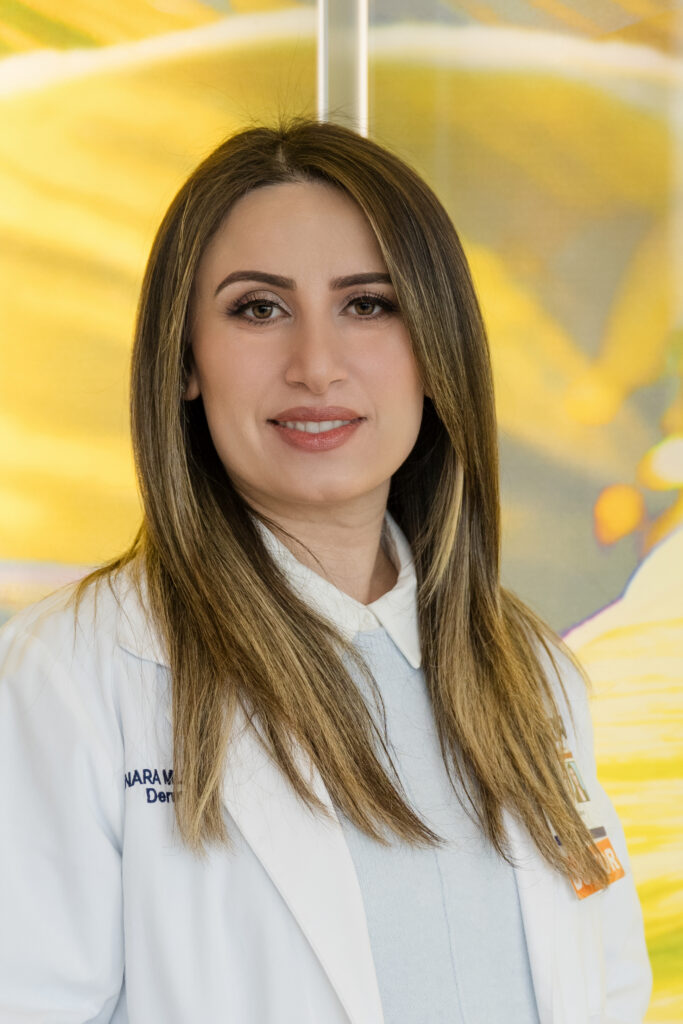
What guidance would you offer high school students aspiring to enter the medical profession? Could you provide five recommendations on what they should focus on and five pitfalls they should avoid?
Focus on:
Don’t feel compelled to major in pre-medicine or biology in college. Pursuing diverse fields like art, music, business, or social sciences alongside science courses can set you apart as an applicant. This diverse background enriches your education and provides a backup plan if needed.
Surround yourself with mentors who offer encouragement and positive guidance. Refrain from being deterred by the occasional negativity about the medical field; instead, inquire about alternative professions from experienced physicians. Many would choose medicine again if given the chance.
Prepare yourself for the rigorous demands of medical school. Understand that your peers will likely be brilliant and capable, which can be a humbling experience. Commit to working diligently and continuously striving for excellence in your medical education.
Seek opportunities to shadow healthcare professionals, participate in internships, or volunteer in medical settings to gain firsthand experience and insight into medicine.
Consider learning a skill outside of academics, such as music, arts, or sports. Cultivating hobbies provides a healthy outlet for stress and fosters a well-rounded lifestyle. These activities can serve as a source of relaxation and rejuvenation amid the demands of medical school.
Here are five pitfalls to avoid:
Do not underestimate the demands of medical school. Be prepared to commit to the challenges ahead.
Don’t neglect your well-being.
Set specific goals and work towards them methodically, focusing on your long-term medical aspirations.
Don’t hesitate to seek guidance and advice from mentors, teachers, or professionals in the medical field from day one.
Remember that being a successful physician requires more than academic prowess. Develop empathy, resilience, and cultural competence, which are vital for providing compassionate and effective patient care.
Shortcuts to Questions & Answers
✱ If you liked this article, please share it with a friend who could use inspiration.
If you have a topic in mind or a story to share anonymously or with your name, email us at team@she.work

